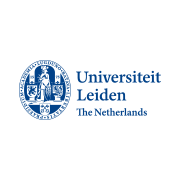How COVID-19 is uniting innovators around the world
Three ways COVID-19 is creating global innovation ecosystems more efficient than ever before.
Published on April 7, 2020
SARS-VOC-2 (COVID-19) is impacting us all both personally and professionally. Last week in our home isolation, it was heart-warming to hear clapping and cheering in solidarity for our NHS and care workers resonating through our neighbourhood.
As Dr Mahlet Mesfin from the University of Pennsylvania has recently put it: “it takes a world to end a pandemic”,1 meaning that we can defeat COVID-19 only if everyone, no exception made, collaborates for this cause.
Collaboration and solidarity are at the heart of the fight against the current pandemic. As most of us experience social distancing and isolation, here are three ways COVID-19 is bringing together innovators, policymakers, and investors around the world, creating global innovation ecosystems more efficient than ever before.
- International cooperation and knowledge sharing have increased
Chief science and technology advisors from around the world now hold regular remote meetings on the effects and efficiency of different COVID-19 responses. Similarly, science ministers from multiple countries have recently joined a conference call to exchange information about the anti-COVID-19 plans in their respective countries.The will to spread knowledge does is not limited to the political enclaves. Taking inspiration from the European Union and a coalition of national research funders,2 more than 30 publishing groups have granted free access to COVID-19-related data and articles to support researchers in developing new technologies against the virus.3 Finally, INGSA, the international forum for policymakers, is developing resources to disseminate accessible information on COVID-19 to inform policy decisions and stimulate capacity building for the future4. - Connecting organisations to develop new technologies
This is a recurrent trend in history: crises spark innovation. New technologies are being developed across scientific fields in response to the current pandemic, and anti-COVID-19 creativity is increasing among medical practitioners. To mention the obvious, researchers from all over the world have been working restlessly since January to discover vaccines against the new virus,5 and novel medical equipment is also being developed.6 Innovation networks and research institutes are doing their part. Among others, Innoget has created COVID-19 Innovation Challenges, a platform connecting organisations and promoting opportunities around the world to create new solutions for use around the globe. - New investment opportunities
Organisations such as funding bodies, corporates, research centres, charities and foundations are investing heavily in research to support the global population through the pandemic. In South Africa, the Department of Science and Innovation has announced a plan to invest in COVID-19-related projects, including drug efficacy studies.7 Similarly, the UK Government will commit £20 million over two rounds of funding8 to support six COVID-19 projects, two of which are focused on pre-clinical and clinical vaccination trials.9 In Estonia, where scientists are known for their pioneering digital research techniques, support for startups entitled Hack the Crisis was set up to fund ideas which might help solve the crisis “in 48 hours”. Further follow-up funding will then carry viable projects forwards.10,11 The Hack the Crisis initiative is being taken up by more countries in Europe.
Where next?
The present spirit of collaboration and solidarity between multiple stakeholders of the innovation chain is on the way to create a temporary global innovation ecosystem (or multiple ecosystems connected to one another), which might become the most efficient one that history has seen so far.
It is impossible to know what the development and commercialisation of new technologies will look like after the COVID-19 pandemic is over. Intense international collaborations will undoubtedly cease, investment in new technology decrease, and researchers will probably go back to operating within smaller, more regional ecosystems. However, if some of the collaboration born to fight COVID-19 were to be retained after the pandemic, there may be long-term benefits to the present solidarity.
For example, universities are currently gaining easier access to industry partnerships. The trust and mutual understanding that is being built between research and industry could continue after the emergency is over, enabling closer university-industry relationships for the future.
Other benefits may derive from the success of current collaborations. Some ecosystems may embrace a less risk-adverse approach to commercialisation projects; and, similarly, investors may be more inclined to consider supporting MedTech products that optimise healthcare systems around the world.Whichever positive changes global innovation undergoes during COVID-19, at the end of the emergency it will be our duty as innovation manager consultants to ensure that not all of them are lost after recovery.
End notes
- https://www.ingsa.org/covid/covid-thinkpieces/mahlet-mar2020/
- https://sciencebusiness.net/news/eu-and-national-funders-launch-plan-free-and-immediate-open-access-journals
- https://wellcome.ac.uk/press-release/publishers-make-coronavirus-covid-19-content-freely-available-and-reusable
- https://www.ingsa.org/covid/
- Among others, see https://www.ovg.ox.ac.uk/news/covid-19-vaccine-development
- Among others, see https://www.med-technews.com/news/asthma-diagnostic-device-could-help-detect-covid-19-cases/
- https://sciencebusiness.net/network-updates/south-african-department-science-innovation-covid-19-research-under-way
- https://mrc.ukri.org/news/browse/covid-19-vaccine-therapy-research-boosted-by-six-new-projects-in-rapid-response/
- https://www.gov.uk/government/news/vaccine-trials-among-recipients-of-20-million-coronavirus-research-investment
- https://www.forbes.com/sites/robertwolcott/2020/03/15/hack-the-crisis-6-lessons-from-estonias-coronavirus-crisis-response/#72ea801c4fca
- https://govinsider.asia/inclusive-gov/nations-launch-challenges-to-find-innovative-solutions-to-covid-19/



























